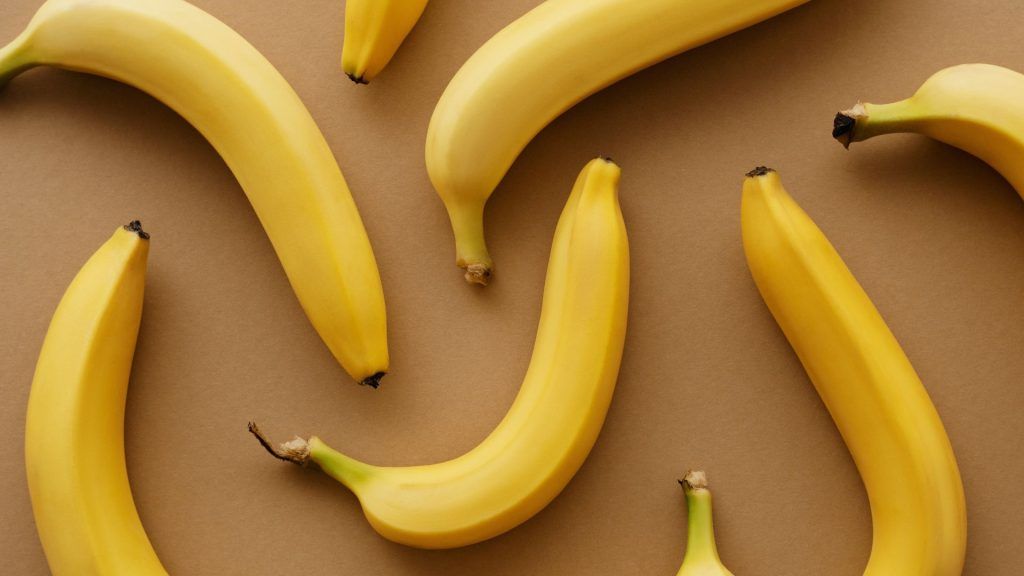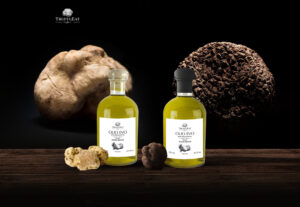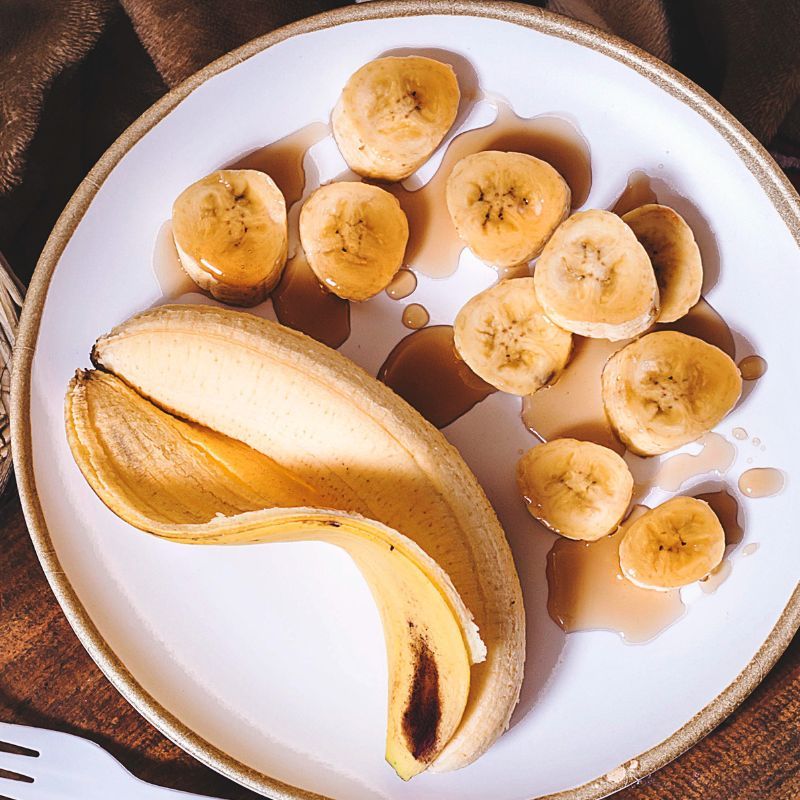
Evergreen, versatile, readily available and easy on the pocket, no one can really argue with a humble banana’s sweet, earthy and mealy appeal. Originally the signature fruit of the tropics, bananas comes in at least 10 to 15 varieties worldwide. Widely eaten across the globe, the fruit is omnipresent and deeply rooted in the culture of not just Southeast Asia but Africa, Europe, the US and the Middle East too. Everything including the banana stem, banana flower as well as peel has health benefits, and parts of its flowers are cooked and consumed as well.
It finds a lot of significance in religion, especially in many Asian countries, as this fruit is used as an offering to god, and its leaves are used to make DIY plates too. Did you know? Banana peel has also been used to weave a soft yarn used in traditional Japanese kimonos.
A nutritional bomb, it is rich in iron, potassium and other minerals. Fairly simple to boil, cook, bake or fry, one can use this fruit at every stage — raw, semi-ripe, ripe and over-ripe. Before you get ready to rustle up a variety of sweet and savoury dishes using this one ingredient, let us take you through an interesting history of how it came to be such an integral part of our history, culture and lifestyle. Understanding the bonafide health benefits of bananas would be a refreshing reminder of why we should include more of this fruit in our day-to-day diet if we aren’t already.
History and origin

The early origin of bananas as per records was in Kuk Valley, New Guinea in 8000 BCE (Before Common Era). A wild fruit earlier, this was possibly the first recorded instance of it being domesticated by human civilisation. Soon, it started being grown in other parts of Southeast Asia and the South Pacific regions. Islamist and Buddhist literature, both find mentions of the fruit. After the 1800s, it was actively exported across the world and became a global commodity.
A humble banana, often used as an intercropping plant, to provide much-needed shade to cash crops including cocoa, coffee and pepper, became a simple meal option for the plantation workers. Calorie rich and satiating, it very quickly got popularised as a working man’s food.
In fact, the health benefits of banana stems include detoxification of the body too. Additionally, it aids in treating kidney stones too.
Varieties of banana
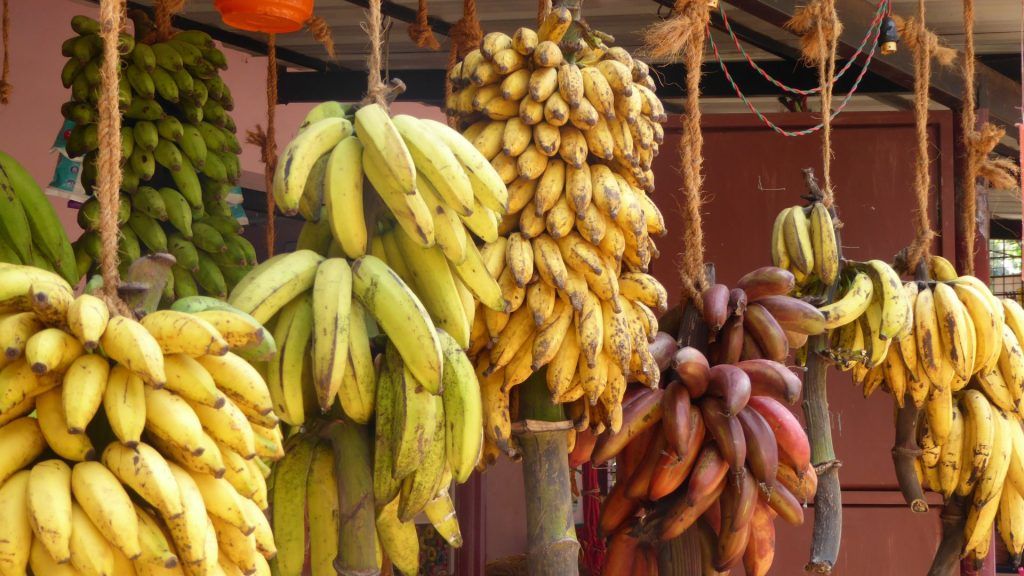
Since its domestication, many hybrid varieties of this fruit have been cultivated over the centuries, hence there are vast and distinct kinds of bananas available across the globe. Broadly, one can find these five types.
Cavendish bananas
Also known as dessert bananas, one finds these varieties in smoothies, cakes and other types of desserts. Thick yellow skin and creamy white, succulent and sweet flesh is the characteristic feature of this kind. It is also the most commonly available variety in many grocery stores.
Apple bananas
Native to Central and South America, you can typically find this variety in the Hawaii Islands. It has firm pinkish flesh and is small in size. That is how it gets its name.
Red banana
Shorter and plump, this fruit has thick skin which is reddish in colour with a purple tinge. When ripe, the flesh gets soft and is sweeter than a regular banana.
Lady finger banana
Longer and thinner, this variety is native to India. These plants thrive in a warm climate and because they are smaller in size, they make up for the perfect snacks.
Plantain
This hard, green sub-type of banana is particularly distinct from its other varieties. Though they are as nutritious as the other varieties, plantains are starchy with very less sugar and hence are perfect for frying. They can only be eaten after being cooked and not raw.
Similarly, the health benefits of the banana stem are also underrated, but it contains good amounts of starch and potassium.
Image credit: Vanessa Loring/Pexels
Nutritional value
The nutritional contents of this underrated fruit, which is often dismissed as common, are phenomenal. A single serving of a medium-sized banana has about 122 calories with carbohydrate and water content and zero fat. The main nutrients comprising this fruit are proteins, carbohydrates, soluble and insoluble fibres, vitamin C, riboflavin, folate, niacin, copper, potassium and magnesium.
Good for gut
Rich in dietary fibre, bananas aid digestion. The resistant starch found in unripe bananas is essentially prebiotic which aids gut bacteria growth in the stomach. What’s more? Studies show that pectin found in the fruit helps with constipation.
Helps maintain optimum body weight
Quite often, bananas are known to aid weight gain but that is not true for more than one reason. Firstly, it is a filling snack. The fibre in the fruit makes it a wholesome meal option and slows down digestion. It kills cravings and makes one feel full. It is just over 100 calories and as mentioned has zero fat. Having cooked plantain is a great option to cut down weight as it is not sweet and is filled with starch and fibre which helps in reducing appetite.
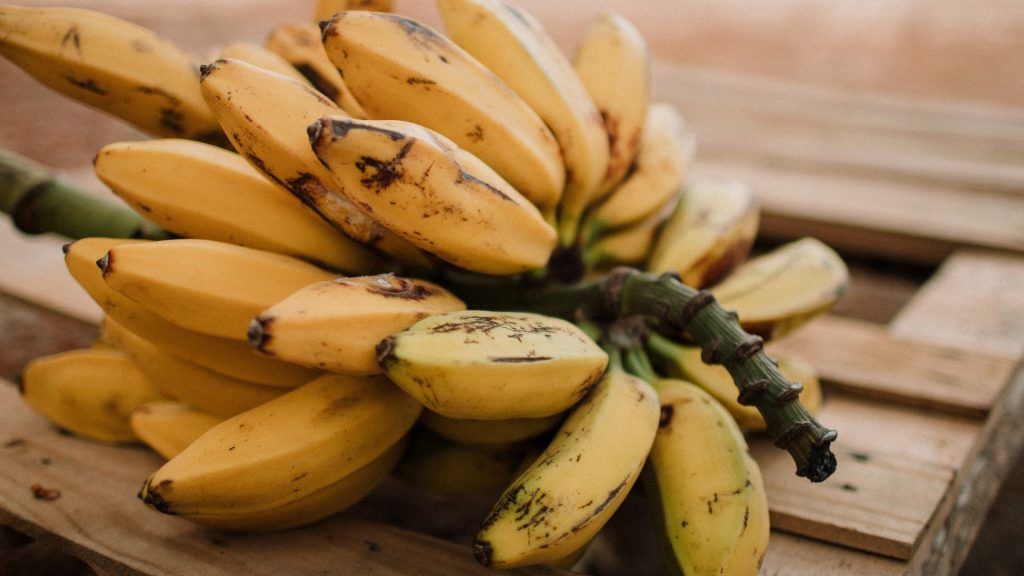
Great for the heart
Bananas contain high amounts of potassium and magnesium, both of which are regarded as vital for maintaining heart health. It is observed that individuals consuming plenty of potassium actually are at a lesser risk of heart problems by 27 percent. This 2018 study reiterates the importance of including magnesium-rich foods in one’s diet to avoid cardiovascular diseases.
Superfood for the athletes
Quickest and easiest way to get back all the lost electrolytes after a heavy physical exercise is to pop a banana. The sweat loss after an intensive activity results in electrolyte loss and a mineral-rich banana is exactly what your body needs to get replenished.
Ensures healthy kidneys
Kidney failure is linked to lower levels of potassium in the body. This 2019 study by the National Library of Medicine discusses how lower levels of potassium are linked with early stages of chronic kidney diseases in people.
However, a word of caution for those suffering from kidney damage at later stages, as various studies restrict their potassium intake for them. They should consult a medical practitioner before going on a banana diet.
Side effects of banana
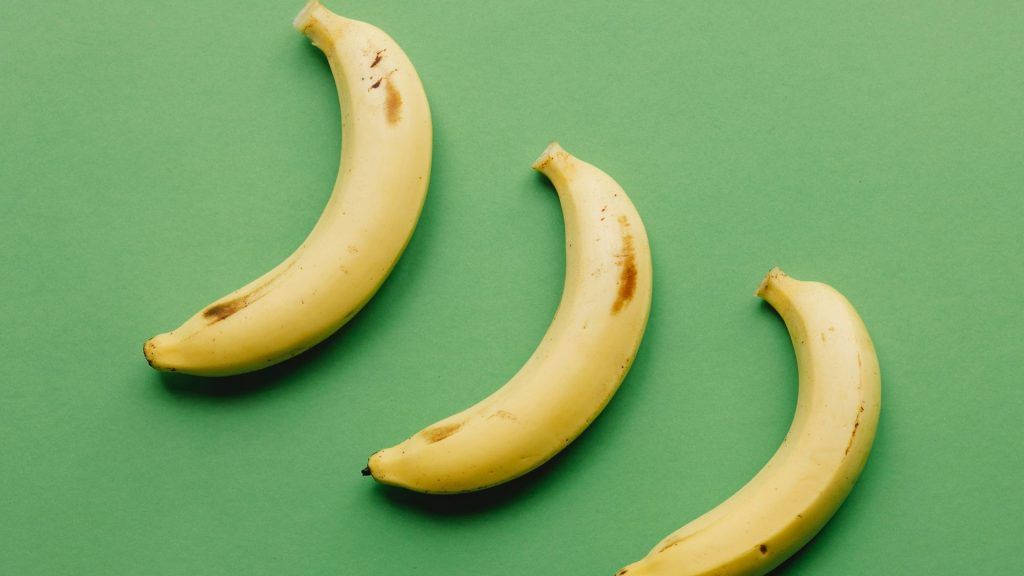
It is established that bananas are a healthy source of calories, but it is important to supplement this fruit with other foods having nutrients lacking in a banana. Since bananas lack protein, a supplementary powder or another plant-based source like oat milk can be added to it and made into a smoothie to increase its wholesomeness. Almond butter can also be added to bananas in a breakfast smoothie to get your body a dose of essential nutrients.
Since bananas contain high levels of naturally occurring sugars, individuals struggling with diabetes need to balance their intake by pairing them with other foods to maintain optimum blood sugar. It is recommended to have plantains over bananas as they contain the same nutritional benefits without added sugar and more starch.
It is always recommended to consult your medical practitioner on the number of bananas to be included in your daily diet especially if you are suffering from any serious medical condition.
How & when to eat bananas?
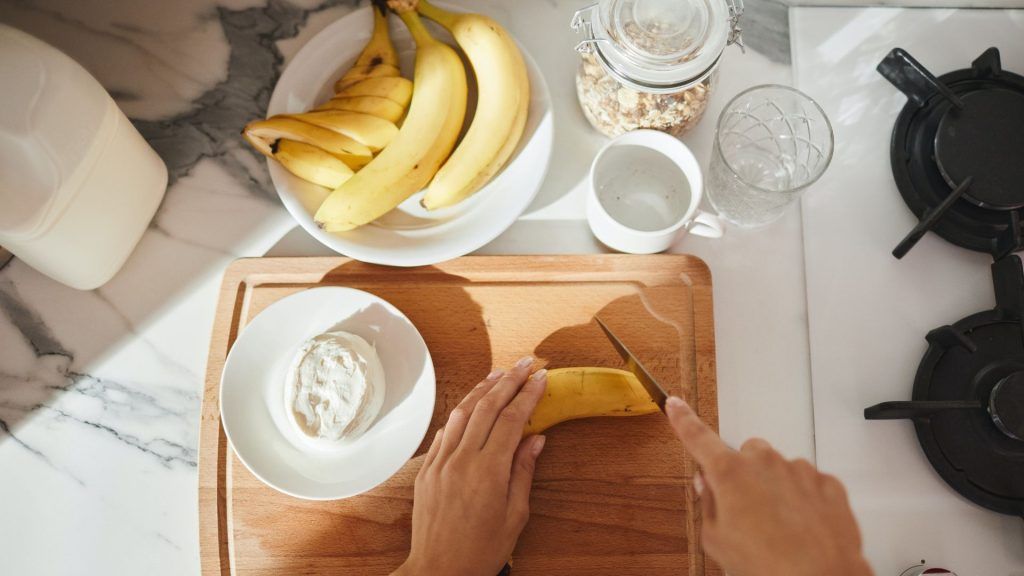
The rise in popularity of a wholesome, buttery and overall fulfilling banana bread skyrocketed during the pandemic. And, its acclaim has still not ebbed. But why limit yourself to a loaf of banana bread when you can create so many versatile dishes with this yellow fruit? Here are some DIY videos that can help you rustle up simple but yummy treats for yourself and your loved ones.
Often made using ripe bananas, mashed bananas or green bananas, these dishes are versatile and easy.
Also, owing to the health benefits of banana stems, it is used in fried and sauteed preparations in South Indian cuisines often.
Conclusion
A banana sure is an affordable superfruit but the main factor to consider before going all out and including it in your day-to-day diet is its consumption in moderation. About two average-sized bananas are considered adequate for a healthy individual in a day. There are many health benefits of bananas for sure but regularly exceeding that quota might do you more harm than good.
(Main and featured image credit: Eiliv Aceron/Unsplash)
Frequently Asked Questions (FAQs)
Question: Are bananas healthy to eat every day?
Answer: Eating 1 or 2 bananas on an everyday basis is considered fine for healthy adults.
Question: What are the benefits of eating a banana every morning?
Answer: Eating a banana early in the morning makes you feel full and also aides in digestion.
Question: What are the disadvantages of bananas?
Answer: While bananas are nutrient-dense, they do not contain the protein and fat necessary in our regular daily intake. Having too many bananas can cause problems for diabetic patients due to its high sugar content.
Question: What is the best time to eat a banana?
Answer: The best time to eat a banana is at breakfast or after an extensive physical exercise.
Question: Which is the healthiest fruit?
Answer: Some of the healthiest fruits include blackberries, apples, pomegranates, pineapple and bananas.
Question: Are bananas good for your skin?
Answer: Bananas are antioxidant-rich and hence best for glowing skin.
Question: Which is the best fruit for glowing skin?
Answer: The best fruits for glowing skin include oranges, papaya, lemon, watermelon and cucumber.
Question: Do bananas help with hair growth?
Answer: Bananas contain silica, a mineral which helps synthesise collagen in hair scalp and skin. It also has dandruff-relieving properties.
Question: Which fruit is good for skin whitening?
Answer: Watermelon and strawberries may help in teeth whitening.
Question: Why can’t bananas be eaten on an empty stomach?
Answer: Bananas are acidic in nature and consuming them in an empty stomach may disrupt digestive health. Also, the natural sugar present in them can make you feel full for some time, but can leave you fatigued and drained out in a few hours.
Preeti Kulkarni
After completing her PG in New Media from the Asian College of Journalism, Preeti has worked in a daily and a magazine before finding her calling in digital journalism. A lover of single malts and an avid pop culture junkie, you can catch her at the movies on weekends or binge-watching the latest shows on OTT when she is not busy preparing her toddler for his Hogwarts letter.
Subscribe to our newsletter to get the latest updates.
You’re all set
Thank you for your subscription.

